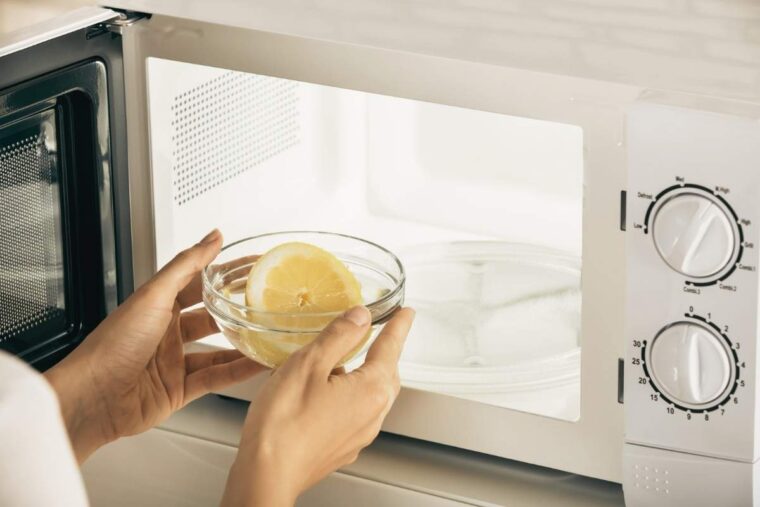Glass is a notoriously tricky material to work with. It can break easily, and it doesn’t always heat up or cool down the way we expect it to.
So can you microwave cold glass? Is it safe? And why would you even want to do that, anyway?
In this post, we’ll answer all of those questions and more. Keep reading to learn more about microwaving cold glass and whether or not it’s something you should try at home.
Can You Microwave Cold Glass?
The short answer is yes, you can microwave cold glass. However, there are a few things to keep in mind before you do.
First of all, it’s important to know that not all glass is created equal. Some glass is better suited for microwaving than others.
For example, tempered glass (like what’s used in Pyrex dishes) is designed to withstand extreme changes in temperature and is much less likely to break when heated up.
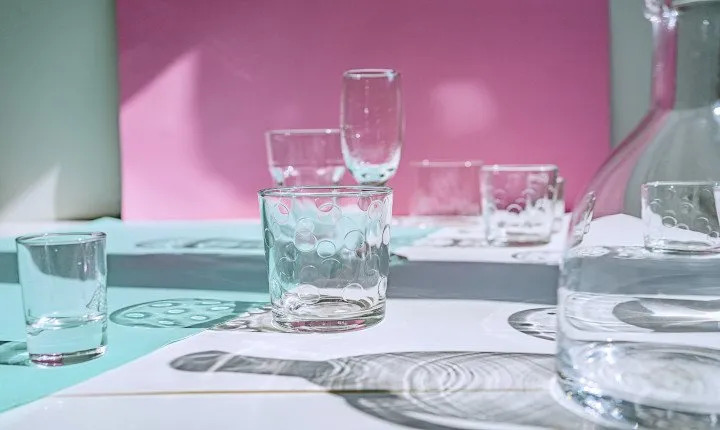
On the other hand, regular glass or “float” glass (like what’s used in most drinking glasses) is more fragile and prone to breaking when heated suddenly. So if you’re going to microwave cold glass, it’s best to use tempered glassware just to be safe.
Another thing to keep in mind is that glass doesn’t heat up evenly. This means that if you’re microwaving a glass dish full of cold liquid, the liquid will likely heat up before the glass itself does.
This can cause the glass to crack or break, so it’s important to be careful. If you’re microwaving a glass dish of cold liquid, make sure to stir it occasionally so that the heat can distribute evenly and prevent the glass from cracking.
Finally, it’s worth noting that even tempered glass can break if heated too quickly or for too long.
So if you’re going to microwave cold glass, do it carefully and make sure to monitor the process closely. Otherwise, you could end up with a broken dish and a mess to clean up.
See also
Why Would You Microwave Cold Glass?
So now that we’ve established that you can microwave cold glass, you might be wondering why you would even want to do that. After all, it’s not the safest or most straightforward way to heat up a glass dish.
One reason you might want to microwave cold glass is because it can help prevent food from sticking to the dish.
If you’re reheating something like lasagna or a casserole, microwaving the dish before adding the food can help ensure that it doesn’t stick.
Another reason to microwave cold glass is because it can help evenly distribute heat. This is especially useful if you’re trying to avoid hot spots in your food.
By microwaving the dish before adding the food, you can help ensure that it heats up evenly and avoid any “hot spots” that might cause the food to overcook or burn.
Finally, microwaving cold glass can also help release trapped aromas and flavors. This is why many recipes recommend microwaving a glass of wine before drinking it.
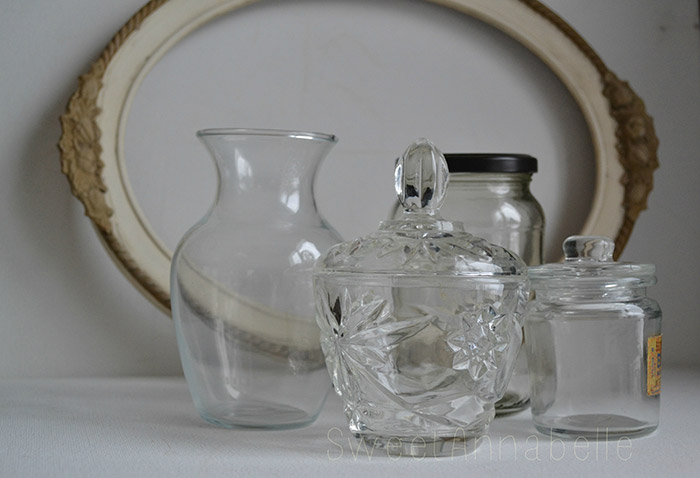
Microwaving the wine helps release its aromas and flavors, making for a more enjoyable experience.
So if you’re looking for a way to heat up glassware quickly and evenly, microwaving it might be the best option. Just make sure to use tempered glass and monitor the process closely to avoid any accidents.
Is It Safe To Microwave Cold Glass?
Now that we’ve answered the question “can you microwave cold glass,” you might be wondering if it’s actually safe to do so. The answer to this question is a bit complicated. It really depends on the type of glass and how cold it is.
If the glass is very cold, it could potentially crack or shatter when exposed to the high heat of the microwave. However, if the glass is just slightly cold, it should be fine to microwave.
So, why does this happen? Well, when glass gets cold, its molecules slow down and spread out.
When you then expose it to heat (like in a microwave), those molecules expand quickly. This can cause the glass to crack or shatter if it’s too cold.
To avoid this, make sure that your glass is only slightly cold before microwaving. You can do this by letting it sit out for a few minutes, or by running it under warm water.
The Potential Dangers Of Microwaving Cold Glass
Even if you follow the above advice and only microwave cold glass that is only slightly cold, there are still some potential dangers to be aware of.
✔️ First and foremost, if the glass is too cold, it could crack or shatter when exposed to the heat of the microwave. This could cause serious injuries if you are not careful.
✔️ Second, another danger of microwaving cold glass is that it could cause the food or drink inside to become extremely hot. This could lead to burns or other injuries.
✔️ Third, microwaving cold glass can cause the release of hazardous chemicals. This is because when glass gets cold, its molecules spread out.
When microwaved, those same molecules expand quickly, which can cause them to break apart and release harmful chemicals.
These chemicals can be dangerous to your health if you breathe them in.
✔️ Fourth, there is a risk of fire when microwaving cold glass. This is because when glass gets cold, its molecules spread out.
When microwaved, those same molecules expand quickly, which can create sparks that could ignite a fire.
So, while you can technically microwave cold glass, it is not always the safest option.
If you do decide to microwave cold glass, make sure that the glass is only slightly cold and that you are careful with it to avoid any potential dangers.
How to Safely Microwave Cold Glass From the Refrigerator
If you do decide to microwave cold glass, there are a few things you can do to help ensure that it is done safely.
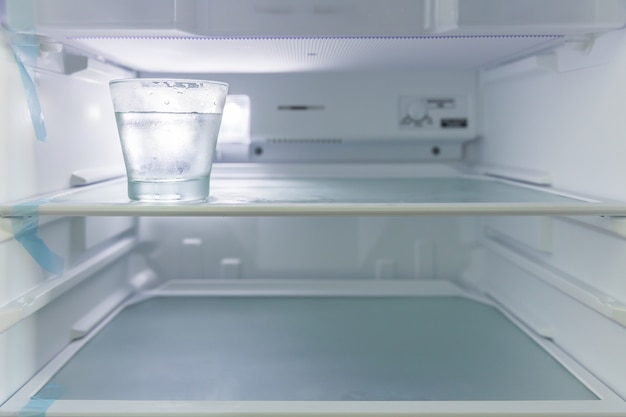
🟢 First, make sure that the glass is only slightly cold before microwaving. You can do this by letting it sit out for a few minutes, or by running it under warm water.
🟢 Second, be careful when microwaving the glass. Make sure that you do not overheat it, as this could cause the glass to crack or shatter.
Microwave it in short bursts and check on it frequently to make sure that it does not get too hot.
🟢 Third, avoid using any metal utensils or containers when microwaving cold glass. Metal can cause sparks that could ignite a fire.
🟢 Fourth, be sure to ventilation when microwaving cold glass. This will help to avoid the release of hazardous chemicals into the air.
🟢 Fifth, be aware of the potential dangers of microwaving cold glass. These include the risk of fire, release of hazardous chemicals, and burns or other injuries from extremely hot food or drink.
🟢 Finally, if you are unsure about whether or not it is safe to microwave cold glass, err on the side of caution and don’t do it.
Following these tips, you should be able to microwave cold glass safely. Just be sure to take precautions and be careful to avoid any potential dangers.
If you absolutely must microwave cold glass, make sure to do so slowly and evenly. Put the glass on a slow rotation setting and heat it for no more than 10 seconds at a time.
Let the glass cool down for at least 30 seconds in between each heating interval. By heating the glass slowly and evenly, you can minimize the risk of breakage.
Additionally, make sure to use a microwave-safe dish when microwaving cold glass. This will help to further distribute the heat and prevent the glass from cracking or shattering.
Finally, avoid using cold glass in the microwave if possible. If you can reheat your food in a different type of container, we recommend doing so. Not only is it safer, but it’s also easier on your dishes.
The Verdict: Microwaving Cold Glass
So, can you microwave cold glass? You can microwave cold glass, but we don’t recommend it.
Glass is a material that doesn’t do well with sudden changes in temperature. When you put cold glass in the microwave, the difference in temperature between the inside and outside of the glass creates a stress point.
This stress point weakens the glass and makes it more susceptible to breakage.
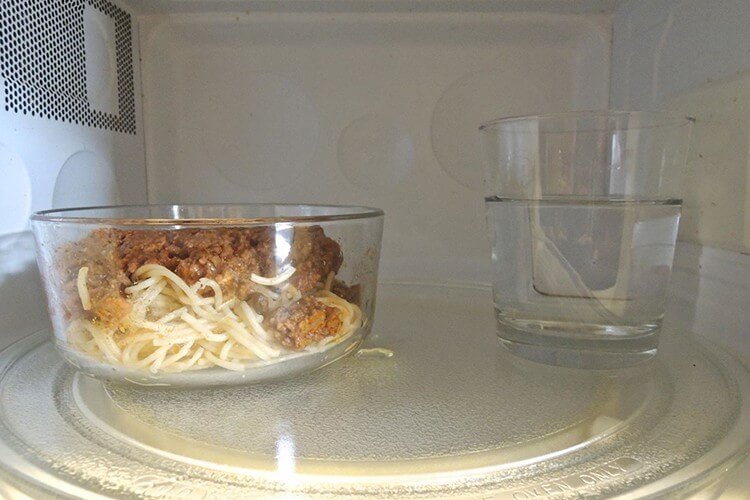
If you absolutely must microwave cold glass, make sure to do so slowly and evenly. Put the glass on a slow rotation setting and heat it for no more than 10 seconds at a time.
Let the glass cool down for at least 30 seconds in between each heating interval. By heating the glass slowly and evenly, you can minimize the risk of breakage.
*When it comes to microwaving cold glass, it’s best to err on the side of caution. If you can avoid microwaving cold glass altogether, that’s probably your best bet.
Why You Shouldn’t Microwave Cold Glass
As we mentioned before, glass is a material that doesn’t do well with sudden changes in temperature.
When you put cold glass in the microwave, the difference in temperature between the inside and outside of the glass creates a stress point. This stress point weakens the glass and makes it more susceptible to breakage.
Additionally, microwaving cold glass can cause the glass to crack or shatter. This is because the heat from the microwave can cause the water inside the glass to expand rapidly.
When this happens, the pressure from the expanding water can cause the glass to crack or shatter.
Even if you don’t see any visible damage to the glass after microwaving it, there’s a good chance that microwaving cold glass has weakened it. This means that it’s more likely to break the next time you use it.
So, if you want to avoid damaging your glassware, we recommend that you steer clear of microwaving cold glass.
FAQs
Is microwaving cold glass safe?
No, microwaving cold glass is not safe. The sudden change in temperature can cause the glass to crack or shatter. Additionally, microwaving cold glass can weaken the glass, making it more susceptible to breakage.
Can you microwave Pyrex?
Yes, you can microwave Pyrex. Pyrex is a type of glass that is designed to withstand changes in temperature. However, we still recommend that you microwave Pyrex slowly and evenly to avoid damaging it.
Can you microwave tempered glass?
Yes, you can microwave tempered glass. Tempered glass is a type of glass that is designed to withstand changes in temperature. However, we still recommend that you microwave tempered glass slowly and evenly to avoid damaging it.
Does glass break going from cold to hot?
Yes, glass can break going from cold to hot. When you put cold glass in the microwave, the difference in temperature between the inside and outside of the glass creates a stress point. This stress point weakens the glass and makes it more susceptible to breakage. Additionally, microwaving cold glass can cause the glass to crack or shatter.
Can I microwave a Mason jar?
Yes, you can microwave a Mason jar. However, we recommend that you only microwave Mason jars that are specifically designed for microwaving. Microwaving regular Mason jars can be dangerous because they are not made to withstand changes in temperature.
Can I microwave water in a glass?
Yes, you can microwave water in a glass. However, we recommend that you only microwave water in a glass that is specifically designed for microwaving. Microwaving regular glass can be dangerous because it is not made to withstand changes in temperature.
Conclusion
While it is possible to microwave cold glass, doing so can cause the glass to shatter. This happens because microwaving cold glass causes thermal shock, which results in the sudden expansion of the glass.
When this expansion occurs within a confined space like a microwave oven, it can cause the glass to break.
So while you technically can microwave cold glass, it’s not recommended and could potentially be dangerous.
In conclusion, microwaving cold glass is not safe. The sudden change in temperature can cause the glass to crack or shatter.
Additionally, microwaving cold glass can weaken the glass, making it more susceptible to breakage.
We hope this article has answered your question, “Can you microwave cold glass?” If not, please feel free to reach out to us. We would be happy to help! Thank you for reading our blog.

